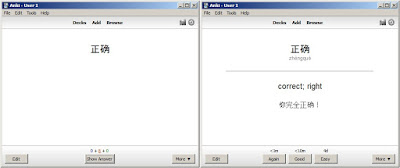- Shipped to me on: December 11th 2017
- Received on: February 6th 2018
Sukapan and roomwear set were bought on Fril, fluffy hoodie on Mbok.
Although I expected a better fit for the roomwear, I am really satisfied with this order.
Although I expected a better fit for the roomwear, I am really satisfied with this order.
Item #1: Liz Lisa Pink Sukapan
I already had my eyes on this sukapan for a couple of months before but didn't dare to buy it. I was first hesitating because it was high-waisted, and until recently, I always believed high-waisted skirts looked bad on me, especially since you usually need to tuck in the shirt (and I also thought tucked-in shirts didn't look good on me). But when I tried on my Bobon21 check sukapan and found out high-waisted didn't look as atrocious as I thought on me, I finally settled on ordering this sukapan.
The sukapan's details are so eye-pleasing; clearly one of the prettiest from Liz Lisa I've ever seen. I love the color, the overall print, and the subtle gingham pattern.
Three layers: shorts, thin underskirt (?) with frills, and actual skirt
 | ..... |  |
I think the fit is lovely. It falls beautifully since the material is really light; doesn't weigh down the figure at all, such as the Liz Lisa brown lace sukapan. It probably helps that the skirt is high-waisted though.
Item #2: Yumetenbo/Dreamv Roomwear
 | ..... |  |
While browsing the seller's items from whom I had bought the Liz Lisa sukapan, I found she also had this lounge set for sale. I had been looking for a long time for a short-sleeves pink hoodie with polka-dots (roomwear or not) and when I saw it, I found it adorable. What's more, if you buy two items, if it's sold by the same seller, FromJapan only charges you one plan fee (1x 300 yen).
It's a really cute set, with the tag still on. The seller had stated on the product's page that the brand was Yumetenbo. I have no idea what does the Yumetenbo tag look like, but I am not convinced the set to be from this brand. Although I don't really mind since it still looks nice, the zipper is of two different colors...?
The hoodie doesn't look bad, but the bottom of it is a little loose, so I asked my mom to sew in an elastic. As for the shorts, they are high-waisted and look awkward on me. I don't like them but am not sure what to do with them for now.
Irrelevant info, but you can see on the picture a red mark on my right thigh. It's been there for three weeks... been told it's because my skin is dry... I really hope it will have completely disappeared by spring/summer.
Item #3: MA*RS pink cat-ear hoodie
This was the most unexpected purchase out of the three items because I never thought I would find it on Mbok/the auctions. I've often seen it on Tumblr and Pinterest (agejo snaps, magazines), and always wanted to buy it. However, since most were already sold out on Fril or Mercari, or too expensive for me, I was more or less actively looking for it online.
I really hesitated before ultimately placing a bid, because the main picture did not make the hoodie look good at all... The fur looked damaged and of a greenish color (dirt). But there were two other pictures on which the hoodie looked cleaner and nicer... The price being decent, I figured out it was worth the risk, so I placed a bid via my proxy service and in the end, won the auction (it seems the seller ended the auction shortly after I placed my bid, thus making me the only bidder, but I can't confirm.)
My expectations towards the product were pretty low because of the price and the pictures' quality. Surprisingly, I was amazed to discover the hoodie to be near brand new. I haven't noticed any dirt or damage.
The hoodie, however, does miss one bow, which may be the reason why the price was/seemed lower.
The fabric part feels thinner than I expected, but I'm not disappointed at all. It's actually better since it is easier to arrange and I like folding it on the inside to make the hoodie's length shorter.
 | ..... |  |
I'm really satisfied with how the hoodie looks on me. I only have good things to say about it: it's not too baggy, the sleeves are just long enough, it looks and feels comfortable, and finally, it keeps you very warm. It has become my favorite hoodie, but I don't dare wearing it for fear of staining it.
Happy Valentine's Day.
The seller also sent me this note (and this strawberry scented gauze pad which gave a nice smell to the hoodie), shame I can't read/understand Japanese.
Happy Valentine's Day.
















